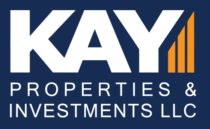By: Dwight Kay, Founder – Kay Properties and Investments, LLC
What is a 1031 Exchange?
The 1031 exchange is thought by many to be one of the more powerful tax deferral tools currently available to taxpayers. Under the Internal Revenue Code Section 1031 taxpayers can defer their capital gains tax on the sale of property if they reinvest the proceeds in like-kind property.
IRC Section 1031 provides that “No gain or loss shall be recognized on the exchange of property held for productive use in a trade or business, or for investment purposes if such property is exchanged solely for property of like-kind, which is to be held for productive use in trade or business or for investment purposes.”
What qualifies as “like-kind” property?
Any property that is held for business or investment will generally qualify as “like kind”.
Examples include:
- Apartment buildings
- Delaware Statutory Trust properties
- Duplexes and Triplexes
- Single-Family Rentals
- Vacant land
- Farm Land
- Office Buildings
- Warehouses
- Self-storage Facilities
- Hotels and Motels
What are the basic requirements to discuss with my CPA and Attorney regarding a 1031 exchange?
- Utilize a Qualified Intermediary (QI) to hold your exchange proceeds.
- Identify your replacement properties with your Qualified Intermediary within 45 days of the sale of your relinquished property.
- Reinvest 100% of your net sales proceeds into the replacement properties.
- Acquire an equal or greater amount of debt on the replacement properties as you had on your relinquished property.
- Close on your replacement properties within 180 calendar days of the sale of your relinquished property.
All real estate contains risk. Please read the full private placement memorandum for a discussion of each property’s business plan and risk factors. There are no guarantees for projected cash flow and/or appreciation. Please do not invest in real estate offerings if you cannot afford to lose your entire investment principal.

